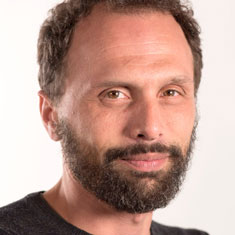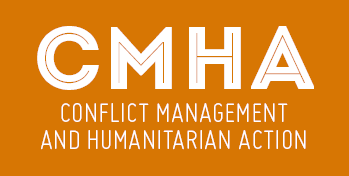Concept

LUCA VERZICHELLI
I have been engaged with the management of post-graduate programmes for about twenty years, covering a variety of fields from comparative and European Politics and Public Administration, to International relations.
In the recent years I have been progressively attracted from the new international challenges and the corresponding professional and cultural opportunities. In particular, I am curious about the relationships between academic teaching-and-learning processes and the changing perspectives of international organizations. I have been the founder of a Master in Global Governance and Cultural Diplomacy, here in Siena, which is now a 2-year master (Laurea Magistrale).
The birth of a 1-year professional master in Conflict Management and Humanitarian Action is a new crucial turning point for me and for all the people working to this project. Indeed, we want to mix the experiences of academic and professional training, connecting two broad questions at the core of our reflections: the future of intercultural and international relations determining a set of innovative practices (what we call Conflict management) and the more and more relevant question of humanitarian action.
As a result, the CMHA programme will examine the political and social issues at the core of the crises in different area of the globe, focusing then of some specific areas of intervention. In particular, the processes of peace construction and of humanitarian aid will be analysed in depth. In the preparation of such an innovative post-graduate programme we have counted on the logistic and intellectual support of a ONG specialized in peace-making processes: Rondine Cittadella della Pace in Arezzo. This is a crucial presence, since our friends of Rondine – who have been partners of USIena for years, help us to balance the academic and pragmatic contents within the CMHA Master.
Moreover, the presence of Tommaso Fabbri and other eminent humanitarian action pratictioners from Medici Senza Frontiere assures a robust set of competences in a broad set of topics.
Overall, the Master will provide an assortment of frontal-teaching modules and thematic seminars, alternating theoretical and pragmatic activities. Students will be required to proactively attend the intensive courses, to make new professional and training experiences – field internships and/or research laboratories – and to write a final essay which will be evaluated by the master faculty.

TOMMASO FABBRI
As a humanitarian expert I am inspired to contribute with my experience to the CMHA master at UNISI. I have decided to join this innovative project because of the particularly relevant content and its innovative pedagogic approach.
The CMHA master content addresses major current humanitarian topics. It focuses on prominent sectors such as global health and migration; on humanitarian interventions’ management; advocacy and communication; humanitarian negotiation; conflict resolution practices; scientific and cultural diplomacy in an intercultural context.
The CMHA is conceived as a ready-to-use practical toolkit for those students that aim at working in the humanitarian environment. CMHA is a joint venture between excellent academics from UNISI and experienced practitioners working for international organizations and NGOs operating in conflict areas and other humanitarian environments. Students will be trained to apply empirical methods and will acquire practical skills to accurately determine humanitarian needs and related actions with a hands-on approach. This will include role-plays, presentations and concrete case studies that tackle the main issues that are currently faced in the field.
The CMHA is also an important platform for building networks between aid workers and students approaching the humanitarian work environment.


